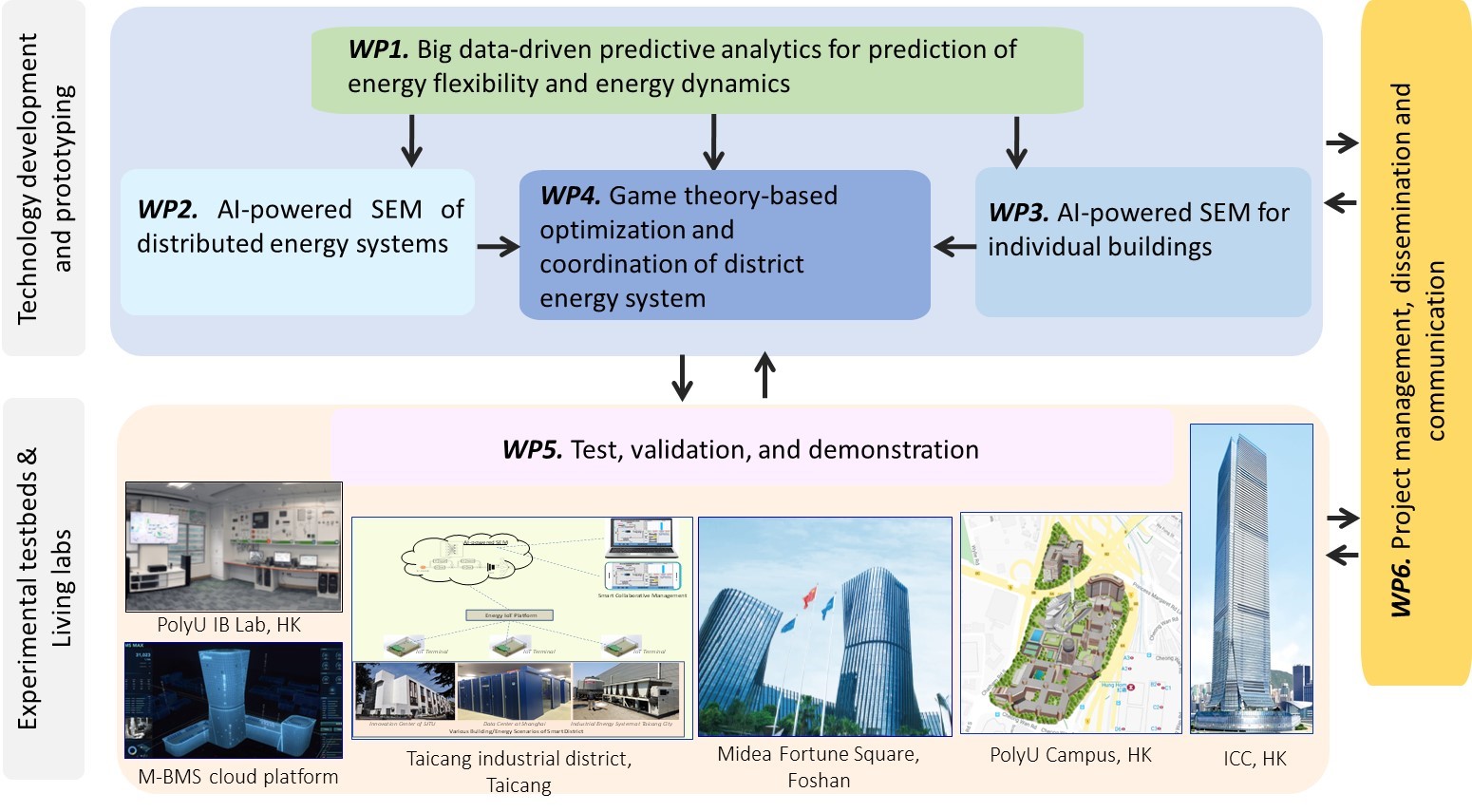SEM4cities

The SEM4Cities project aims to develop innovative smart energy management technologies and solutions for buildings and districts in smart and sustainable high-density cities by effectively leveraging advanced big data and AI technologies.
Summary
A large amount of energy is consumed to create comfort and productive built environments for people in high-density cities, which is associated with large amount of carbon emissions. To increase the use of renewable energy in high-density cities, new methods and tools are needed. As energy systems in buildings, districts and cities are complex, energy saving, and energy flexibility provision must reflect system physics to avoid sub-optimal energy management.
SEM4Cities integrates system physics in a hierarchical spatial and temporal framework, including models for and energy aggregation at all levels, combining machine learning with mathematical models of known physical processes.
SEM4Cities brings universities, living labs and companies in Denmark and China with complementary expertise and technologies together to accelerate the green transition.
SEM4Cities aims to develop, test, and showcase in 6 living labs innovative smart energy management technologies and solutions for buildings and districts in high-density cities by effectively leveraging advanced big data and AI technologies - including:
- Data driven predictive models for energy dynamics characterization and energy flexibility prediction for buildings and districts
- AI-powered model predictive control and optimization methods for distributed energy systems
- Game theory-based methods for optimization and coordination of buildings and distributed energy systems.
Research objectives and WP structure
In five work packages the SEM4Citites project aims to develop innovative smart energy management technologies and solutions for buildings and districts in smart and sustainable high-density cities by effectively leveraging advanced big data and AI technologies.

About
Funding
SEM4Cities is funded by Innovation Fund Denmark (IFD) and Ministry of Science and Technology of China (MoST), Bilateral Cooperation Sino-Danish 2019 call
Period: 36 months, 1 Nov 2021 – 30 Oct 2024
Partners - The Danish team
- DTU Compute, Professor Henrik Madsen
- DTU Construct, Associate Professor Rongling Li
- ENFOR, Managing Director Mikkel Westenholz
- CLIMIFY, CEO Davide Cali
Partners - The Chinese team
- The Hong Kong Polytechnic University, Professor Linda Fu Xiao
- Shanghai Jiaotong University, Dr. Zhimin Du
- Midea HVAC Equipment Co., Ltd., Dr. Yuanyang Li
